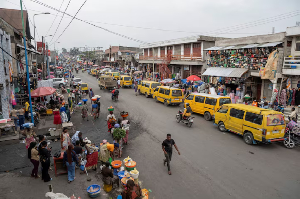Save Our Beaches Ghana, a Non-Governmental Organization, has called on stakeholders and government institutions to put measures in place to help fight the negative human activities destroying the coastal belt of the country.
Mining of sand, the practice of open defecation, and throwing of waste along the shores of the beaches, they said, had caused investors great loss, thereby making the beaches unattractive to tourists.
Paa Kwesi Wilson, Founder of the NGO, in an address to mobilise support to halt the practices and save the sea, said the beaches were important national assets that needed investments to turn them into beautiful resorts that would earn the country some foreign exchange.
However, he said, unfortunately, many Ghanaians did not appreciate the value of the beaches, hence they degraded them with their activities.
He warned that the destruction of the beaches could pose serious implications for human existence and wellbeing.
Ms Peace D. Gbeckor-Kove, Programmes Officer of the Environmental Protection Agency, (EPA) said the unsafe activities at the beaches had caused erosion, algal bloom and the influx of sargassum species to be forming at the beaches, thus killing aquatic life and leaving the fisher folks unemployed.
She said the dumping of refuse into the sea and not handling waste properly in the country was one of the reasons the EPA embarked on the waste segregation project to help promote the recycling some of these waste materials and to reduce the rate of waste generated.
Ms Gbeckor-Kove recommended the education of people to change their behavior and attitudes towards helping to manage urban waste, reusing and repair of waste produced, saying some of the waste could serve as raw materials for other products.
Mr Kinsley Inkoom, Deputy Editor of The Graphic, said Ghanaians were not willing to change their attitudes to protect this resources left by their forefathers, therefore, in a few years the coastal belt would be a no go area.
Mr Inkoom said the beaches when well kept would offer a serene atmosphere for relaxation and the release of stress after the hard day’s work, which would improve tourism and create employment to the people living in the locality.
“But the littering and the unsafe human activities of Ghanaians deter people as well as tourists from visiting to the place for a site seeing,” he said.
Mrs Cecilia Ampadu, a representative of Ministry of Health, said the negative activities were costing the country a great loss because the government had to invest in the sector to avert the health implications caused by these activities.
She said keeping the coastal belt clean would prevent diseases such as cholera, dysentery, typhoid, and respiratory problems, which became severe last year.
Regional News of Monday, 16 February 2015
Source: GNA
NGO calls for seriousness in saving beaches
Entertainment











